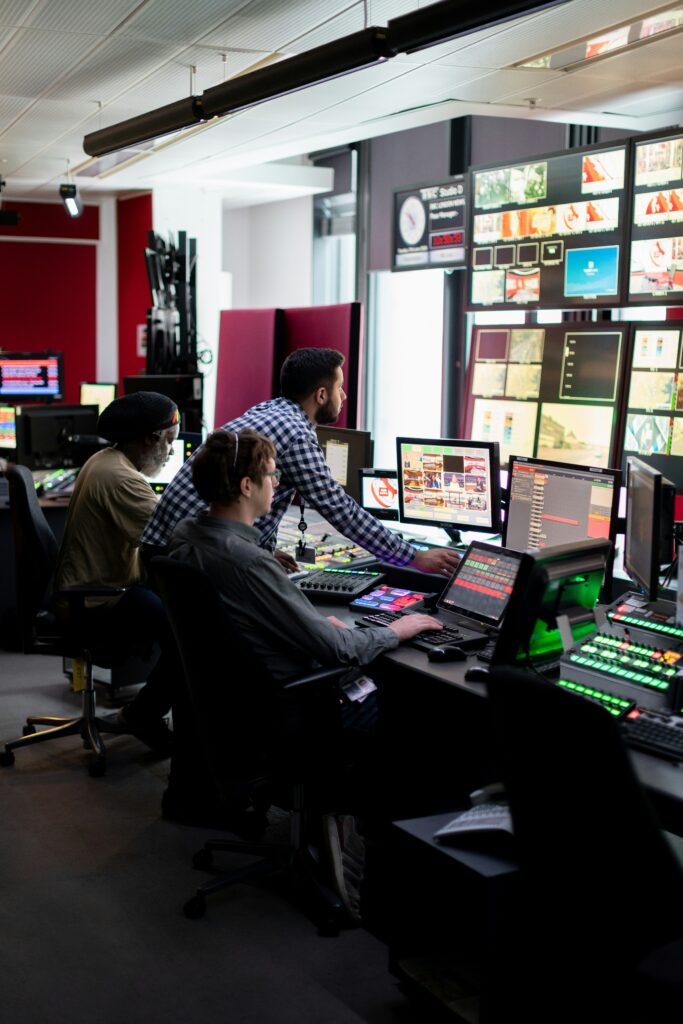1. Introduction
As IPTV services surge in popularity, they face mounting challenges in security and transparency. The reliance on digital networks for delivering content leaves IPTV platforms vulnerable to piracy, fraud, and cyberattacks. Enter blockchain technology—a decentralized, secure, and transparent system capable of reshaping the IPTV landscape. With its ability to fortify security while enhancing trust, blockchain technology holds the key to a more robust future for IPTV platforms.
2. Challenges in Securing IPTV Platforms
Despite their convenience, IPTV platforms are a prime target for illicit activities.
- Piracy Epidemic: Unauthorized access and redistribution of content cost the global IPTV industry billions annually.
- Data Vulnerability: Platforms risk exposing user data to cyberattacks, leading to identity theft and financial losses.
- Payment Fraud: Fraudulent subscriptions and compromised payment systems undermine the profitability of IPTV services.
These challenges necessitate innovative solutions, with blockchain technology emerging as a formidable contender.

3. How Blockchain Enhances IPTV Security
Blockchain offers a decentralized approach to safeguarding IPTV systems.
- Decentralized Architecture: Unlike centralized systems prone to single points of failure, blockchain ensures data is distributed across a secure network. This minimizes hacking risks and bolsters system reliability.
- Immutable Ledgers: Blockchain’s transparent and unalterable records make it easy to track and verify legitimate content distribution, effectively curbing piracy.
- Smart Contracts: These self-executing agreements automate transactions and subscriptions, reducing the risk of fraud while streamlining payment processes.
4. Blockchain Applications in IPTV Platforms
The integration of blockchain extends beyond security, introducing innovative functionalities:
- Tokenized Payments: Blockchain enables IPTV platforms to accept cryptocurrency payments, providing anonymity and reducing fraud risks.
- Content Licensing: Blockchain ensures that content creators receive rightful compensation through automated licensing agreements stored on the blockchain.
- Real-Time Monitoring: Blockchain’s transparency allows service providers to track content distribution in real-time, ensuring compliance and accountability.
5. Benefits of Blockchain for IPTV Stakeholders
Blockchain delivers advantages for all parties involved:
- For Consumers: Blockchain enhances trust by safeguarding personal data and ensuring transparency in subscriptions.
- For Providers: By automating processes and reducing fraud, blockchain cuts operational costs while improving service reliability.
- For Creators: Content producers gain better control over licensing and revenue distribution through blockchain systems.

6. Current Trends and Innovations in Blockchain and IPTV
The convergence of blockchain and IPTV is fostering exciting advancements:
- NFT Integration: IPTV platforms are experimenting with NFTs (Non-Fungible Tokens) to offer exclusive content access and personalized viewing experiences.
- Cryptocurrency Partnerships: Collaborations with blockchain startups enable IPTV providers to accept a wide range of digital currencies.
- Decentralized Streaming Platforms: Emerging platforms leverage blockchain for peer-to-peer content sharing, reducing reliance on central servers.
7. Challenges of Adopting Blockchain in IPTV
Despite its promise, blockchain adoption in IPTV faces hurdles:
- High Costs: Implementing blockchain systems demands substantial investment, potentially deterring smaller providers.
- Scalability Issues: Processing large volumes of transactions on a blockchain can lead to delays, impacting user experience.
- Technical Barriers: The complexity of blockchain technology may alienate less tech-savvy users, slowing its adoption.
8. The Future of Blockchain in IPTV
As blockchain technology matures, its impact on IPTV platforms will grow:
- Smart Contract Evolution: Future iterations of smart contracts will allow for even more sophisticated automation and customization of IPTV services.
- Global Marketplace: Blockchain could enable the creation of a decentralized IPTV marketplace, connecting content creators, providers, and viewers worldwide.
- Enhanced Interactivity: Blockchain-based systems could facilitate interactive features like real-time voting and audience engagement during live events.

9. Conclusion
The rise of blockchain technology represents a turning point for IPTV platforms. By addressing security vulnerabilities and fostering transparency, blockchain has the potential to revolutionize the way IPTV services operate. As stakeholders invest in blockchain innovation, the industry is poised to offer safer, more reliable, and increasingly engaging experiences for its users. The future of IPTV lies in embracing this transformative technology, setting a new standard for digital entertainment.





